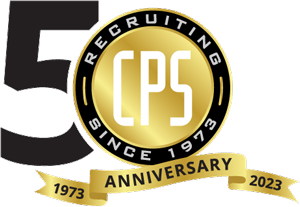When it comes to workplace archetypes, you can probably identify at least a couple of colleagues that fit the below descriptions. But what about you? What type of employee are you and how do your characteristics help and/or hinder your workplace performance? In what ways can you build upon or let go of these qualities in order to make the most of your position?
#1 The Self-Starter
The self-starter is often someone who assumes a leadership role in a workplace, formally or informally. Whether or not the self-starter is actually a manager or an official team-leader, the self-starter advocates for him or herself and works well independently. Self-starters are deadline and task oriented without reminders or micro-management, and are therefore typically assets to a company. Self-starters are innovators who pitch ideas, take risks, and are likely to be promoted from within companies because of their loyalty and drive.
#2 The Problem Solver
The problem solver possesses and demonstrates excellent inductive and deductive reasoning skills and can troubleshoot both predicted and unforeseen problems with ease and generally with speed. The problem solver can often even mitigate issues outside of his or her specific position or expected skill sets. Is the printer consistently jammed? Does a meeting schedule need to be modified? Does the budget need tweaking? The problem solver can deftly lend a hand in multiple capacities. The problem solver sets management’s mind at ease and is also often promoted from within because of a natural ingenuity.
#3 The Cheerleader
Otherwise known as “the motivator,” the cheerleader is central to boosting an overall workplace morale. The cheerleader is typically successful at his or her actual job, but is most valuable on account of his or her attitude and demeanor. The cheerleader encourages others, keeps a positive outlook, plans for the future, spread positivity in the office, etc. In times of stress or under strict deadlines, the cheerleader helps motivate his or her colleagues to plow through and finish tasks, even if said tasks seem insurmountable.
#4 The Procrastinator
It is human nature to procrastinate, and natural amphetamines are produced when one performs work under pressure or under tight time constraints–thus making the procrastinator a very common type of employee across many fields. Procrastinators are not necessarily detrimental to business; they often procrastinate because they are so busy and involved in other aspects of the job that they put off specific projects. Because of this, they tend to be passionate and motivated, but a bit reckless and oblivious to time. The procrastinator may be a bad fit for a job that requires regular deadline-driven work, but he or she can often pull off seemingly impossible creative feats with relative ease.
#5 The Favorite
The favorite, as the name obviates, is the proverbial “teacher’s pet” or even “brow-noser.” This employee seeks the proximity to and approval of the boss, with varying outcomes. Because the favorite is motivated, he or she can accomplish substantial work. On the other hand, the desire to impress can come at the cost of colleague trust and rapport, which can cause divisiveness amongst employees.
Whichever employee type you lean towards, self reflection is a critical part of long-term success at a job. CPS, Inc. will help you find the perfect position for your individual interests and strengths.

Leave a Reply